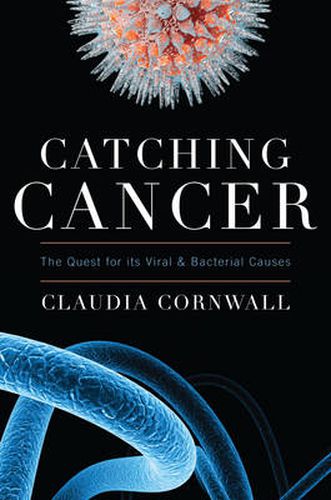Readings Newsletter
Become a Readings Member to make your shopping experience even easier.
Sign in or sign up for free!
You’re not far away from qualifying for FREE standard shipping within Australia
You’ve qualified for FREE standard shipping within Australia
The cart is loading…






This title is printed to order. This book may have been self-published. If so, we cannot guarantee the quality of the content. In the main most books will have gone through the editing process however some may not. We therefore suggest that you be aware of this before ordering this book. If in doubt check either the author or publisher’s details as we are unable to accept any returns unless they are faulty. Please contact us if you have any questions.
Catching Cancer introduces readers to the investigators who created a medical revolution-a new way of looking at cancer and its causes. Featuring interviews with notable scientists such as Harald zur Hausen, Barry Marshall, Robin Warren, and others, the book tells the story of their struggles, their frustrations, and finally the breakthroughs that helped form some of the most profound changes in the way we view cancer. Claudia Cornwall takes readers inside the lab to reveal the long and winding path to discoveries that have changed and continue to alter the course of medical approaches to one of the most confounding diseases mankind has known. She tells the stories of families who have benefited from this new knowledge, of the researchers who made the revolution happen, and the breakthroughs that continue to change our lives.
For years, we’ve thought cancer was the result of lifestyle choices, environmental factors, or genetic mutations. But pioneering scientists have begun to change that picture. We now know that infections cause 20 percent of cancers, including liver, stomach, and cervical cancer, which together kill almost 1.8 million people every year. While the idea that you can catch cancer may sound unsettling, it is actually good news. It means antibiotics and vaccines can be used to combat this most dreaded disease. With this understanding, we have new methods of preventing cancer, and perhaps we may be able to look forward to a day when we will no more fear cancer than we do polio or rubella.
$9.00 standard shipping within Australia
FREE standard shipping within Australia for orders over $100.00
Express & International shipping calculated at checkout
This title is printed to order. This book may have been self-published. If so, we cannot guarantee the quality of the content. In the main most books will have gone through the editing process however some may not. We therefore suggest that you be aware of this before ordering this book. If in doubt check either the author or publisher’s details as we are unable to accept any returns unless they are faulty. Please contact us if you have any questions.
Catching Cancer introduces readers to the investigators who created a medical revolution-a new way of looking at cancer and its causes. Featuring interviews with notable scientists such as Harald zur Hausen, Barry Marshall, Robin Warren, and others, the book tells the story of their struggles, their frustrations, and finally the breakthroughs that helped form some of the most profound changes in the way we view cancer. Claudia Cornwall takes readers inside the lab to reveal the long and winding path to discoveries that have changed and continue to alter the course of medical approaches to one of the most confounding diseases mankind has known. She tells the stories of families who have benefited from this new knowledge, of the researchers who made the revolution happen, and the breakthroughs that continue to change our lives.
For years, we’ve thought cancer was the result of lifestyle choices, environmental factors, or genetic mutations. But pioneering scientists have begun to change that picture. We now know that infections cause 20 percent of cancers, including liver, stomach, and cervical cancer, which together kill almost 1.8 million people every year. While the idea that you can catch cancer may sound unsettling, it is actually good news. It means antibiotics and vaccines can be used to combat this most dreaded disease. With this understanding, we have new methods of preventing cancer, and perhaps we may be able to look forward to a day when we will no more fear cancer than we do polio or rubella.